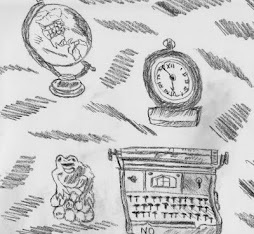Sovereign Immunity Concept
According to Cooper (2007), sovereign immunity concept was derived from England. In analyzing the concept, it is suggested that the highest power – the King – represents the sovereign figure that makes decisions to serve the people, but is protected under immunity, if in fact, he under performs or demonstrates poor decision-making abilities. Sovereign immunity prevents the King from imprisonment for jeopardizing a region due to his ineffective performance.The President of the United States assumes a major role in decision making, as they must help formulate the annual budget, had executive control over the military and maintains the highest position in the American government. President Bush elected to engage into the Iraq War on the predetermined notion that Saddam Hussein maintained Weapons of Mass Destruction. After millions of Iraq soldiers and citizens, and over 4000 American soldiers were killed in combat, President Bush is not going to be sued by the families of the troops. Military members are not permitted to sue the Armed Forces unless there is obvious negligence, but the court avoids such cases. Constitutional violations in employment discrimination cases and the 5th amendment violation in the Eldridge disability case go beyond sovereign immunity. When President Nixon engaged into illegal wiretapping and information breech in Watergate, he broke ethical and government laws from hiding evidence, which would’ve incriminated him. Politicians are expected to make mistakes. They are protected from outside lawsuits.
Sovereign Immunity in U.S. Constitution
An actual amendment stating sovereign immunity protection doesn’t exist within the U.S. Constitution. According to Cooper (2007) the Eleventh Amendment states:
The judicial power of the United States shall be condensed to extend to any suit in law or equity, commenced or prosecuted against on the United States by Citizens of another State or by Citizens or Subjects of an Foreign State” (534).
The 11th Amendment basically provides that states are exempt from lawsuits from people and other coordinating states. States are given a high level of responsibility in ensuring efficiency. If a governor acts in the best interest of the state, they should not experience any legal backlash for adverse results.
Sovereign immunity exclusions should be written into the Constitution. While the people believe that government entities should be sued for their actions, the risk of public service is highly controversial and weighed heavily in the public forum. When a public entity acts in the best interest of the people, the agency and in respecting the U.S. Constitution, they should be protected from adverse results. Presidents are judged for their poor decision-making and leadership, and not confronted with lawsuits that hold them accountable for their mistakes.
Executive politics is a complex position that demands a great deal of resources. Senate and Congress shouldn’t be sued for voting on an issue that damages the quality on a group, city and environment. Although there should be governmental protection, there is also reason to believe that unethical and illegal activity should be excluded from sovereign immunity. If President Bush knowingly entered the Iraq War on the presumption that he wanted to take over a country for no apparent reason, then he would be confronted for abusing his authority.
Out of 43 U.S. Presidents, there is no clear evidence that proves that a President acted illegally to endanger Americans. A perfect example challenges the mere perception of sharing confidential classified information for monetary value. The Iran Contra Arms Deal in the 80’s shifted legal responsibility to Lt. Col North while the main culprit could’ve been President Reagan. Enacting a sovereign immunity law would allow governmental officials to break the law and not worry about the consequences. Changing the 13th amendment would enable states to sue, as well as other citizens to submit lawsuits on the grounds of poor state decision-making that jeopardized their families and their quality of life. Tobacco companies were not protected, and were sued for billions, considering that it was the victim’s decision to smoke cigarettes. Sovereign immunity is a controversial subject that policymakers should continue to support, but should remain in effect to protect from impending lawsuits due to poor governmental decision-making
References
Cooper, P. J. (2007) Public Law & Public Administration. Australia: Thomson Wadsworth.























No comments:
Post a Comment